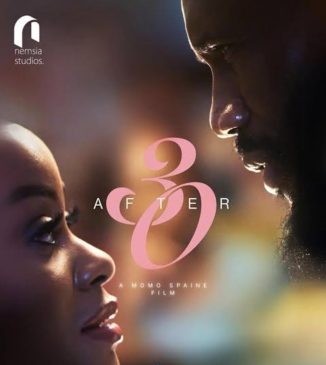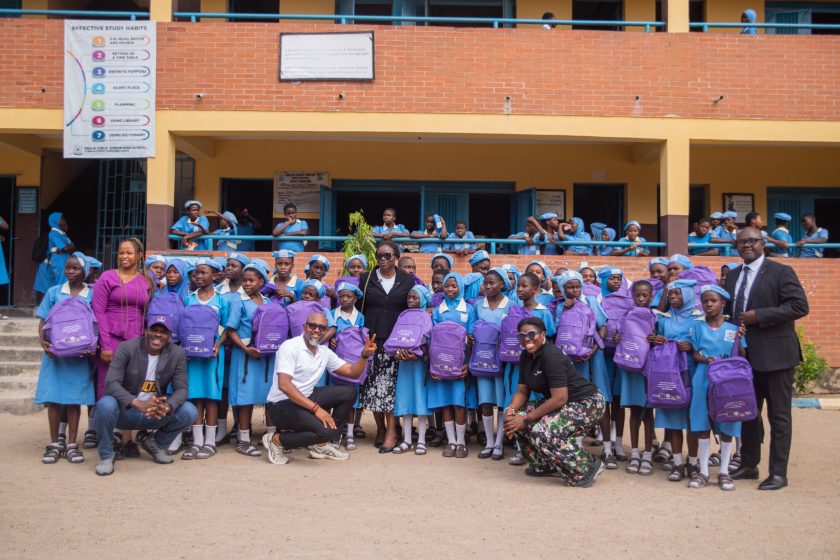By Agbo Favour Amarachi
‘AFTER 30’ delves into the complex, often dramatic beauty of life after 30 years of age.
The film brings back the original cast – Damilola Adegbite, Beverly Naya, Meg Otanwa, and Anee Icha, explores the lives of four women as they navigate love, motherhood, ambition, and personal growth in their 30s.
Directed by Omorinsojo Spaine and co-written by Spaine, Bibi Ukpo, and BB Sasore, ‘After 30’ challenges societal pressures on women, particularly the belief that one’s worth is tied to marriage before a certain age. Instead, it centres on friendship, rediscovery, and defining success on your terms. ‘After 30’ is the sojourn of four close friends in Lagos, nearly a decade after Before 30 held viewers captive. Where the original series dealt with the pressure to marry before hitting 30, this sequel digs deeper into the quiet battles and bold dreams that come after.
Set in Lagos, the story remains rooted in familiar terrain but takes a deeper dive into the internal journeys of its characters.
In ‘After 30’, we are drawn into quiet battles and bold dreams that define womanhood beyond societal deadlines. The four friends, now older, face challenges that test not only their enduring bond but also their individual senses of self. The film explores how these women confront their evolving personal aspirations while offering a reflection on the complexities of female friendship in a new chapter of life.
Although ‘After 30’ doesn’t particularly bring anything new that we haven’t seen with the female friendship trope, it pushes this trope further by grounding the women’s friendship in an introspection that seeks to define these women by more than just the effortless chemistry that exists between our charming lead actors. Or their marital aspirations. It’s even less about a bunch of women defying the patriarchal system and refusing to be dependent on men but more about women quietly carving out their truths, exploring their body, their inner longings, hence giving it a sharper commentary on the female experience than its glossier peers.
Damilola Adegbite as Temi, the high-powered lawyer is still beguiled by Ayo (OC Ukeje) after all these years that she allows him into a love triangle game with the sequel’s newcomer, Kunle (an underused Samuel Asa’ah). Her friends say Ayo is her mumu button and boy are they right?
Nkem (Beverly Naya) is successful as an investment banker, but continues her sex-ploration, but only this time with a fierce hunger for motherhood. Did she finally become a mother???find out??
Aisha (Meg Otanwa) is suffocating silently under the weight of societal expectations of a mother and there’s only so much she can give from her well of endurance.
This is the second time one is seeing Meg Otanwa play the role of a mother who went through postpartum depression. The first was in For Maria Ebun Pataki. And she does this pretty well, if one must say. Ama (Anee Icha), thanks to a generous inheritance from a wealthy godmother, she could be set for life with freedom to explore her new hobby and maybe give love a shot especially with the introduction of our second major newcomer, Alice (Celestina Aleobua) whose character adds a layer of complexity to Ama’s.
‘After 30’ appears to interrogate feminist issues that most female- centric titles won’t, especially with how it questions what motherhood is–an aspiration or devotion? In this film, one woman’s aspiration to motherhood shines light on another woman’s devotion to it. Perhaps this is sheer coincidence, or perhaps it is the writer’s deliberate choice to examine this subject by drawing parallels.
While Before 30 concluded with more questions than answer, it retained an earnest appeal. In contrast, after 30 she only makes a concerted effort to gloss over her film’s shortcomings without addressing the narrative issues in the film, resulting in a polished makeover of the original series but with a hollow experience, nonetheless.




